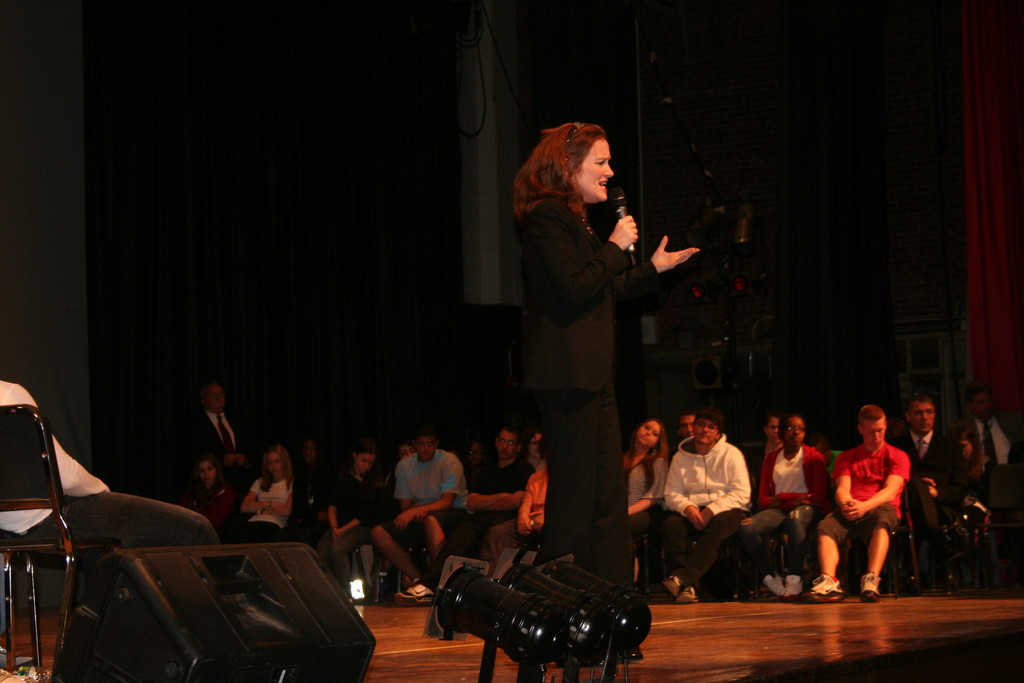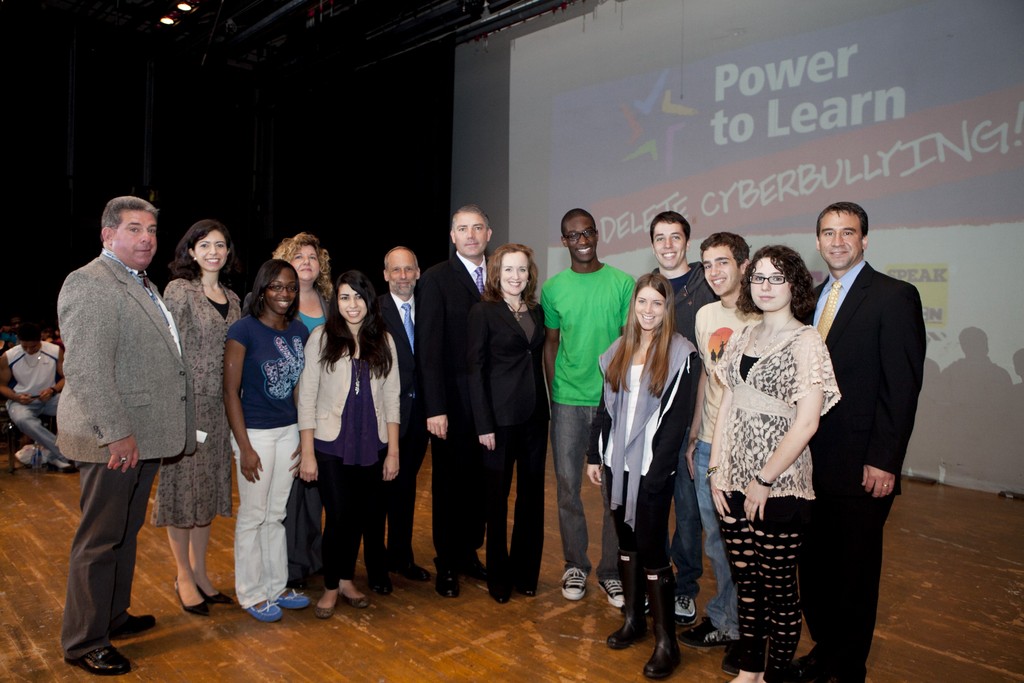Getting lessons on cyberbullying
Lawrence students hear from Nassau County DAs
For young people, the Internet is great for sending emails, contacting a professor and doing research on what colleges they’d like to attend, but as Lawrence High School Principal Dr. Jennifer Lagnado said, it can also be dangerous.
Nassau County District Attorney Kathleen Rice and Assistant District Attorney Anne Donnelly brought their “S.T.O.P. Then Send” initiative to Lawrence High School on April 28 in partnership with Cablevision’s “Delete Cyberbullying.” Both programs seek to inform parents, students and educators about the dangers of cyberbullying, Internet predators and social networking websites.
“I hope students learned what cyberbullying is, how wrongful it is and most importantly that if they’re having a problem they should contact a trusted adult immediately, whether it be cyberbullying or any other situation,” she said.
Rice said when she grew up there were no cell phones or Internet, but things are much different now. “We started this program because kids are living their lives in different ways because of advancements,” she said. “And bad things can happen.”
She stressed that as the Lawrence High School students prepare for college, they must be concerned with what is on their Facebook page and other social media websites. “Colleges look at Facebook,” she said. “I’m trying to get you kids to understand the consequences of your actions.”
The presentation included videos about Phoebe Prince and Megan Meier. Both committed suicide because of cyberbullying. In May of 2010 nine Massachusetts teenagers were indicted with charges ranging from statutory rape to criminal harassment and stalking Prince.
Donnelly said aggravated harassment is a common charge when dealing with cyberbullies and if the victim is a minor, the charges would be much more serious. In cyberbullying cases, Donnelly also said there is no such thing as an innocent bystander. “As friends we have to help each other out,” she said. “We have to be a strength for them.”
If a student is being cyberbullied, Donnelly said students should block or ban the bully, set-up a new account on a website, report the person to the website, save any evidence in case criminal charges are made and to talk to a responsible, trustworthy adult. “Do not seek revenge on that person and don’t cyberbully that person back,” she said.
A student asked what the difference was between bullying and cyberbullying. Donnelly said bullies go from victim to victim, however, with cyberbullying, once the post is made, it’s out there on the Internet forever. She noted that laws need to catch up. “Right now, punishment is on a case-by-case basis,” Donnelly said.
Jennifer Vacchio, a senior, said she thought the presentation was informative. “It taught everyone a lot about cyberbullying,” she said. “I’m sure a lot of people learned something they didn’t know.”
Donnelly reminded students that bullying could happen to anyone. “Each one of us can become the victim of bullying,” she said. “But it’s important to talk about those issues.”
Senior Abraham Killanin said while he’s never been cyberbullied, he thought the program covered a topic no one discussed before. “Anyone can access the information if it’s online,” he said. “And people tend to think they’re invincible but I hope they think twice before posting information online.”
Lagnado said the school would continue to hold school assemblies on a regular basis about topics important to the students. Cablevision presented a $2,500 check to school officials to upgrade the high school’s Internet security and block sites such as Facebook.









